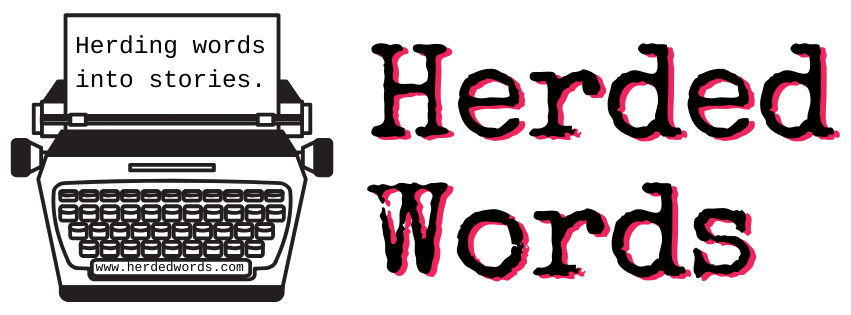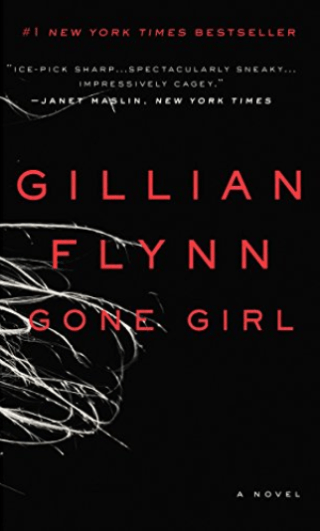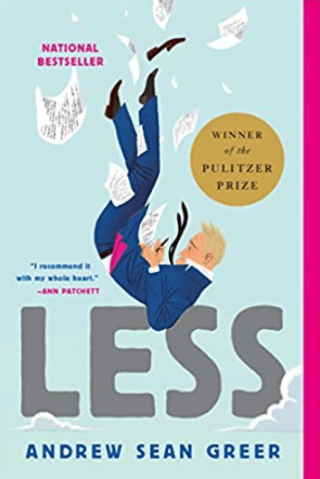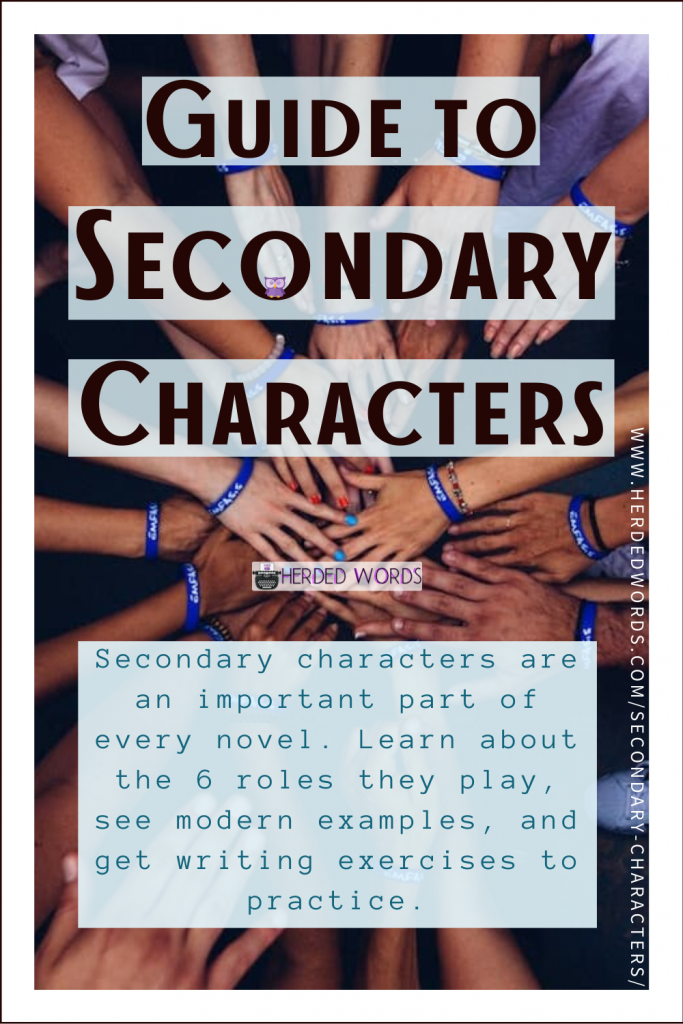
Listen to this post
Herdedwords.com uses affiliate links. This means we receive a commission on the sale of certain items. This is at NO additional cost to you. Visit the policies page to learn more.
The word skeptic brings up ideas of a bad or negative character but that doesn’t have to be the case.
Dictionary.com defines skeptic as
- A person who questions the validity or authenticity of something purporting to be factual
- A person who maintains a doubting attitude, as toward values, plans, statements, or the character of others.
The skeptic is one of the 6 essential character types.
Table of Contents
Why Do You Need a Skeptic?
A skeptic is a valuable character because they’re more likely to see through insincere or false ideas, people, plans, etc.,
The skeptic is probably going to be on the protagonist’s “side” but they’re not necessarily loyal to it.
The skeptic wants to win but doesn’t think it’s possible. Or doesn’t think the protagonist is following the right path. Or they doubt the situation or antagonist is really a problem. Or, or, or. The skeptic doubts that winning is possible. They’re skeptical.
The skeptic might be right, in fact, they should be at least once. They don’t have to be pessimistic (although they could be). They don’t believe that all hope is lost.
Don’t undervalue the skeptic. They’re almost as important as your main character and antagonist!
The ONLY Important Quality of a Skeptic
Yes, there’s only one quality that a skeptic has to have:
A SKEPTIC MUST BE DOUBTFUL
A skeptic must doubt things.
They can doubt plans, people, anything but they have to doubt something. That doubt is what makes them the skeptic.
Their doubt doesn’t come from a place of fear, hate, or insecurity. It’s a part of their personality and not something that needs to be ‘fixed.’
Roles/Responsibilities of a Skeptic
There are two important roles/responsibilities for the skeptic.
#1: Support the Protagonist
Even though the skeptic is full of doubts, they still support the protagonist. They might express their negativity the whole time, but they’re on the protagonists’ side.
The skeptic is unlikely to doubt the protagonists’ motivations – it’s much more common for them to doubt the plan, problem, and/or choices.
#2: Create Conflict
Skeptics often bring a lot of conflicts.
Characters often don’t want to hear the doubts of the skeptic. They also get frustrated with the negativity the skeptic can bring.
The skeptic does not often offer a different plan or idea from the one they doubt, and this can also increase conflict and tension.
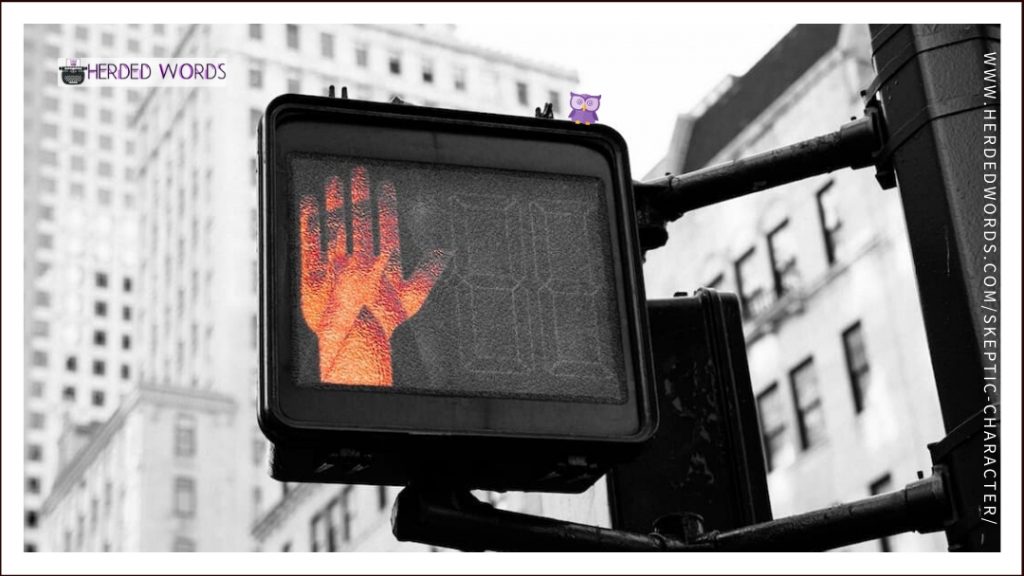
Skeptic Examples
Check out these examples of the Skeptic from bestselling and award-winning novels.
GONE GIRL
GONE GIRL, published in 2012, is a mystery, thriller & suspense novel by Gillian Flynn. The movie was released in 2014.
GONE GIRL spent 8 weeks at #1 on the NYT Bestseller List. It’s estimated the novel sold more than 15 million copies worldwide by 2016.
Skeptic: Detective Rhonda Boney
Doubtful
She’s a detective, doubtful is her job.
#1 – Supports Protagonist
Detective Rhonda Boney supports the side of justice and the truth. In some ways, this makes her on Nick’s side.
#2 – Creates Conflict
Her job as a police officer investigating the disappearance of Amy (and then Amy’s assault) means that she’s bound to create conflict. She also increases the tension and conflict created by other characters.
LESS
LESS, published in 2017, is a satirical comedy novel by Andrew Sean Greer.
LESS won the 2018 Pulitzer Prize for Fiction.
Skeptic: Arthur Less
Doubtful
There is no-one more doubtful than Arthur Less himself. He bumbles along with a sad skepticism, especially about himself.
#1 – Supports Protagonist
Less is both the protagonist and the skeptic. He bumbles his way forward, all the while doubting his skills, abilities, and sometimes his sense.
#2 – Creates Conflict
This self-doubt causes a lot of conflicts. He allows himself to be pulled along and doesn’t take many risks. He thinks he’s inferior so he doesn’t apply himself. He lets his relationships define him.
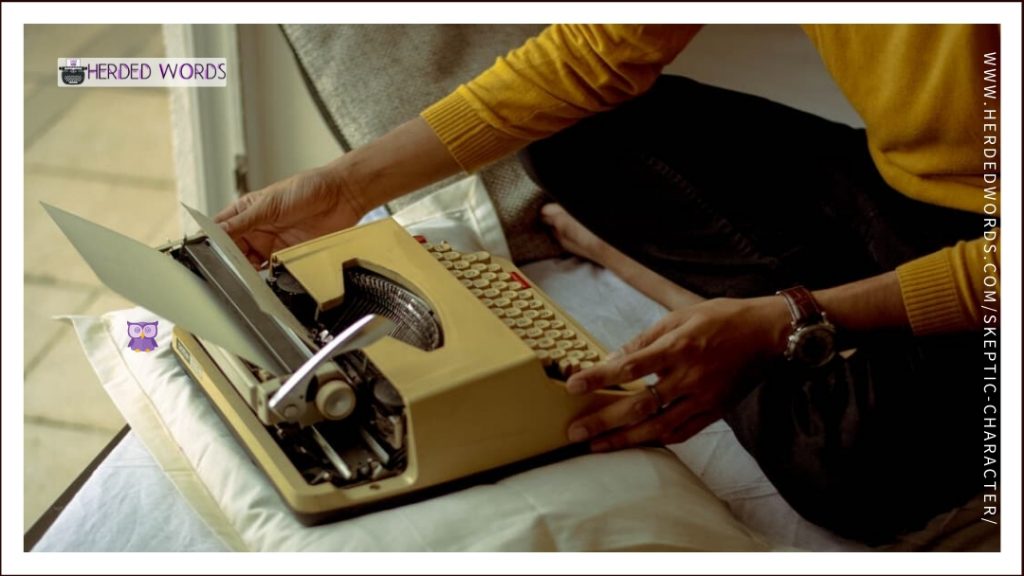
Practice Writing the Skeptic
It’s that time again: PRACTICE TIME! Check out these exercises and prompts to help you master the skeptic character.
Exercise: Analyze More Novels
Every genre will be a little different. Choose some of your favorite novels and some novels in the genre you want to write in (if they’re different). Analyze the skeptic of each novel.
- Who is the skeptic? How do you know?
- Find at least three examples of the skeptic being doubtful.
- How does the skeptic support the protagonist?
- When does the skeptic create tension or conflict?
Exercise: Adapt LITTLE RED
Now that you understand the skeptic, it’s time to add one to LITTLE-RED CAP.
Your task: Create a skeptic for RED. Write a scene of at least 400 words that includes your skeptic.
Prompt:
Several students at the local high school have died of an overdose of a mysterious new drug.
Your Task: Write a scene of at least 400 words featuring a skeptic.
Notebooks for Exercises & Prompts
You can do exercises and prompts anywhere – in the comments, in a word document, in Scrivener (or other writing software), or by hand. I prefer to handwrite them. I carry a notebook everywhere!
Check out one of these awesome notebooks!
Maybe Not
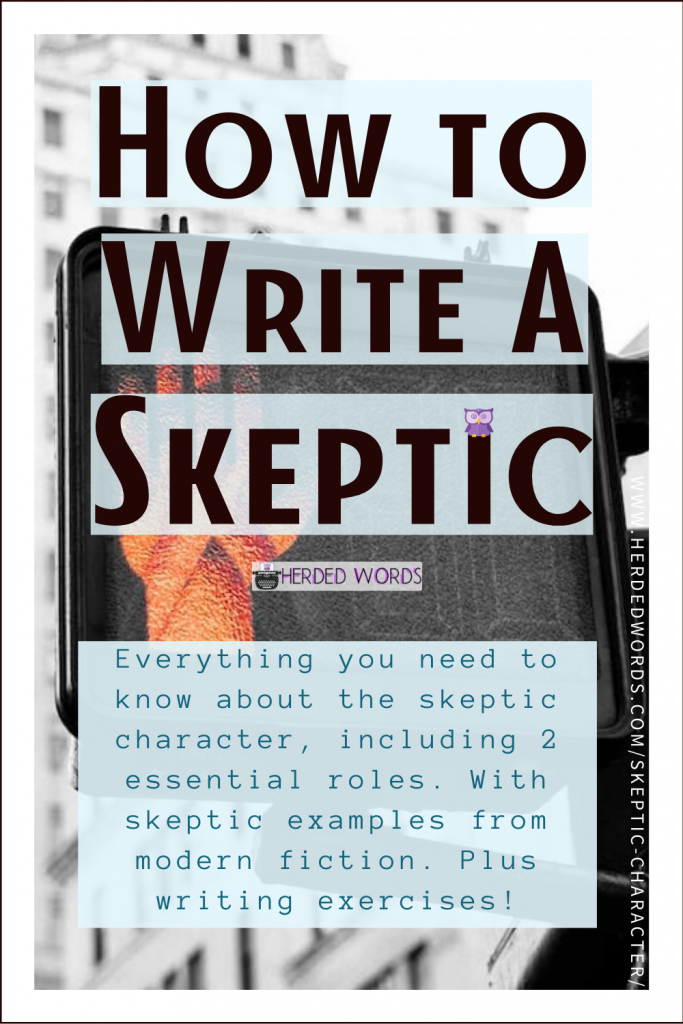
Skeptics play crucial roles in novels. They increase conflict and provide doubts while supporting the protagonist.
Make sure to use the skeptic to improve your novel!
We’ve covered a lot of characters, but there are still more to go. Check out the Guide to Secondary Characters next.
Like this post? Please PIN IT and follow me on social media. Thanks!
